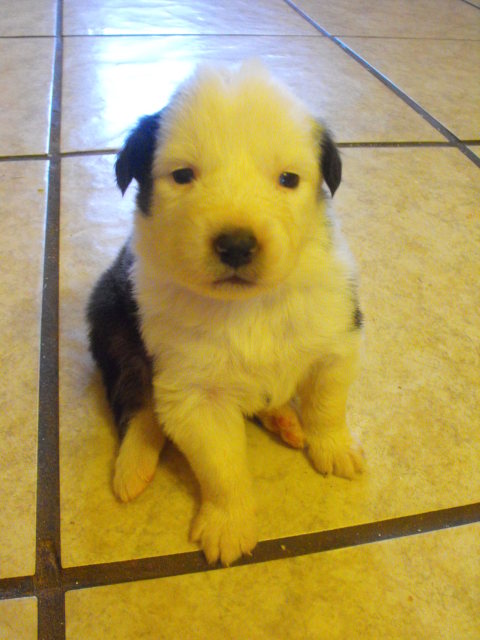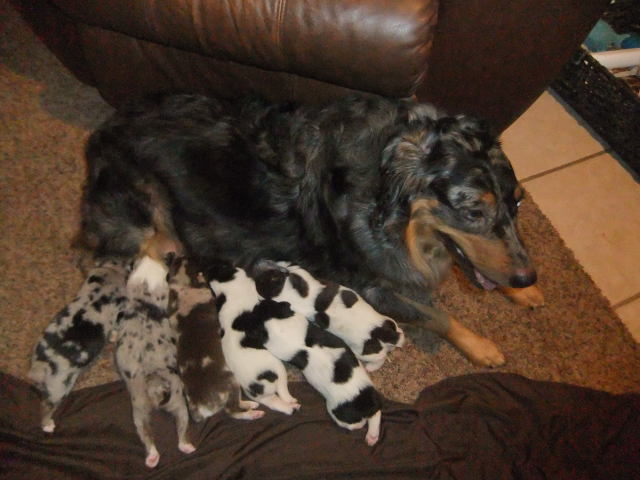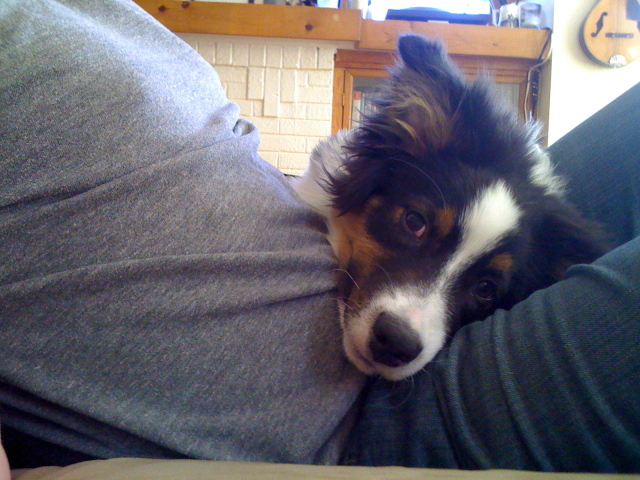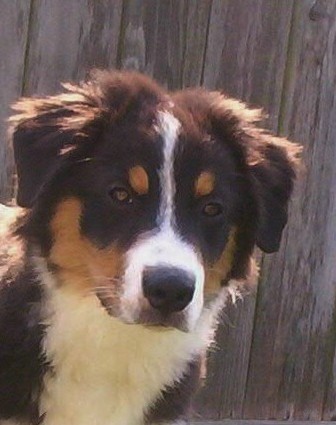QuestionI am considering an Aussie for my next dog. My current dog is a Rottweiler and all of my experience has been with this breed, when I selected a Rottweiler my kids were young and I wanted an easy to train, very obedient dog. She has been a perfect dog, very well behaved and gentle. I love the Rottie disposition but my current dog has been diagnosed with bone cancer and I am not sure I want to risk going through this ordeal again. (common in this breed) I am considering a more medium sized dog with a longer life span. I love intellegent trainable dogs but am concerned about how adapted the Austrailian sheperd is to life off of the farm, I believe I can meet the increased exercise/play needs but worry about the tendency to escape. If this dog gets out of the yard will a well trained Aussie come to me when I call or run away? Is crate training appropriate for this breed? Also, having seen the havoc reaped on Rottweilerer with backyard breeding how do I find a reputable breeder. I live in Northern Virginia.
AnswerI am terribly sorry to hear about your Rottweiler diagnosis. It is never easy to accept the illness and inevitable loss of a beloved family companion.
Like the Rottweiler, the Australian Shepherd is a very intelligent, very trainable breed, but they are also an extremely active breed. This breed is not one to be content to sit quietly in a backyard for days on end. They are easily crate trained for housebreaking purposes and travel, but they require a balance of plenty of exercise, human contact and socialization in order to remain a well rounded companion.
As a family member, the Australian Shepherd requires obedience training to ensure a well mannered dog at home and in public. An Aussie that doesn't receive adequate attention, socialization and exposure to a variety of situations can grow up to become unsociable, fearful or aggressive. They can develop unpleasant behaviors such as digging, chewing and barking as a result of boredom.
Generally, Aussies do well when raised with children and other pets. Many adult dogs, such as those found in the rescue programs, can be evaluated to see how they are with children, dogs and other species. Avoid any dog, regardless of the breed, that exhibits extreme shyness or displays aggression.
The Aussie should have a moderate length coat that doesn't mat or tangle easily, but they will still require regular brushing about once a week with special attention paid to the fine hair behind the ears and at the britches. Both Rottweilers and Aussies shed, but unlike the short, stiff hair of the Rottweiler, the Aussie leaves piles of soft undercoat that seem to float up and get into everything, so housekeeping duties will increase with this breed. They lose some coat year around and shed seriously once or twice a year, with intact females shedding much more profusely than males. Neutering or spaying your dog will greatly decrease the frequency and amount of hair shed, but it will still occur. As a general rule, the Australian Shepherd is a clean dog, with any mud or dirt debris falling out of the coat once it dries. They require a bath only when they begin to smell doggy.
This is an athletic breed and they need regular, physical exercise to maintain condition and good muscle tone. Throwing a ball, walking, jogging, biking, hiking, and swimming are all good forms of exercise for the Aussie.
Keeping an Aussie in a fenced area is always a good idea. They do make fine urban companions and are happiest as indoor companions. The well mannered Aussie will return to the owner when called, however adolescent puppies are the exception as they tend to mischieviously and intentionally run the other direction when called. Fortunately, they also outgrow this stage. This is where obedience training is an excellent idea.
An Aussie roaming loose in suburban areas is likely to chase and bark at joggers, bicyclists, and automobiles resulting in injuries to themselves or others. A securely fenced area is an absolute must for the breed! "Secure" fencing is fencing that touches the ground in all areas and is at least 5-6 feet high)
Aussies that recieve adequate attention and who live indoors as part of the family rarely have issues with escaping yards. Those dogs that tend to escape suburban yards are doing so out of sheer boredom and often live exclusively outdoors. Bringing the dog inside will ensure the best possible relationship with you and your Australian Shepherd.
Australian Shepherds for the most part are a healthy breed that require annual health exam and regular health care maintenance. The breed's life expectancy on average is about thirteen years. Pets should be spayed or neutered to decrease the risk of mammary and testicular cancers.
Some Aussies have exhibited sensitivity to certain pharmaceuticals such as Ivermectin (for Heart Worm control), Immodium A-D, Flagyl and certain anesthetics.
The most frequently seen inherited, genetic problems include Hip Dysplasia, Juvenile Cataracts, Epilepsy, and Auto Immune diseases (thyroid, pemphigus, generalized demodectic mange).
Reputable breeders screen all breeding stock for hip dysplasia and inherited eye problems. They should be willing to discuss any and all possible problems in the bloodlines and offer a contractual guarantee to replace a dog or refund money should your pup develop one of these serious problems. They will be able to discuss both the strong and weak points of their breeding program. Any breeder (of ANY breed) who tells you that they have no history of genetic defects in their bloodlines is a person to be avoided. All dogs, just like all humans, have recessive genetic problems lurking in the background and the breeder must be aware of these problems to avoid doubling up on them in breeding.
For more information regarding the health issues of the breed please read the following articles found on a great information site, the Australian Shepherd Health and Genetics Institute:
http://www.ashgi.org/articles/gen_info.htm
This is a breed that will reside with you for the better part fifteen years. Poor choices are the most frequent cause of returned or abandoned dogs.
The people best suited to living with an Australian Shepherds are those who enjoy spending a lot of time with their dogs and are able to commit the time to providing exercise and training on a regular basis. Ideally, an Aussie owner will provide a job for their dog, whether it's as a helper on a ranch, participating in one of the various dog sports or as a companion during regular outings to the park and protector of hearth and home.
Locating a reputable breeder requires a combination of a willingness to search both in your state and outside of it for the right breeder *and* dog that will best suit your lifestyle. You should be willing to ask a breeder many questions, examine their history in the breed, including what roles they have taken to improve the breed outside of just producing puppies. A good breeder offers contracts, asks you lots of questions, expects you to do the same, actively competes at some level with their dogs, has health checks on all breeding stock, can offer peer references, and participates either regionally or nationally in their breed club.
Here is a fairly comprehensive list of breeders in the US and in other countries:
http://www.blueearthnet.com/australianshepherds/index.html
Their presence on this list is not an endorsement of their quality or ethics, but provides a starting point to begin your search.
Here is a link that lists several important questions you should ask the breeders you contact:
http://www.shalakoaussies.com/QuestionsBeforeYouBuy.html
Finally, here is a link to an Illustrated Breed Standard to help you understand what the breed should look like and why:
http://www.shalakoaussies.com/BreedStandard_Main.html
I know this was a very long response, but I wanted to be certain I provided the most comprehensive response I could to help prepare you in your research of this breed.
Good luck to you and if you have any more questions, please don't hesitate to ask!!
SH

 Overly White Face in A Tri Colord Dog
Question
my new puppy
I am going to be getting a female
Overly White Face in A Tri Colord Dog
Question
my new puppy
I am going to be getting a female
 Pattern Whites
Question
Blue merle female and
We bred our blue merle
Pattern Whites
Question
Blue merle female and
We bred our blue merle
 Aussie diet/potential allergies
Question
Dog
We have a 5.5 month old male Aussie with d
Aussie diet/potential allergies
Question
Dog
We have a 5.5 month old male Aussie with d
 Australian Shepard/Cattle Dog Mix
Question
Roxy
Hi there. I recently adopted a dog from a
Australian Shepard/Cattle Dog Mix
Question
Roxy
Hi there. I recently adopted a dog from a
 training age
Question
Zak
I have an aussie puppy that is 4 months an
training age
Question
Zak
I have an aussie puppy that is 4 months an